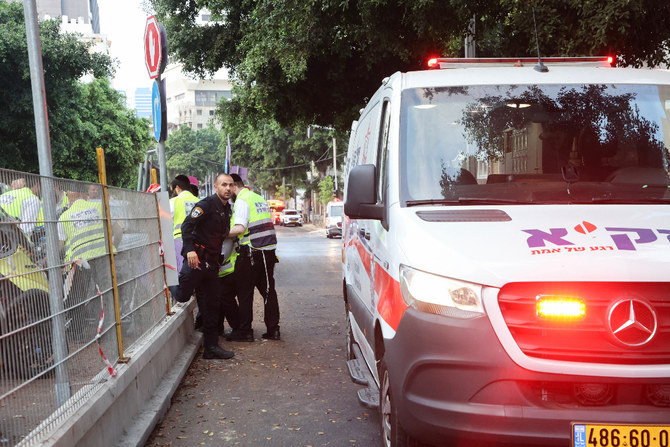GAZA: An Israeli airstrike hit two schools in Gaza City on Sunday, killing at least 25 people, the Palestinian official news agency said, while the Israeli military said it struck a Hamas military compound embedded in the schools.
An Israeli air strike hit a tent camp inside a hospital in central Gaza earlier in the day. Gaza health officials said at least 44 Palestinians were killed on Sunday, the day after a round of talks in Cairo ended without result.
Footage circulated on Palestinian media showed bodies scattered inside the yard of one of two blast-wrecked schools as residents rushed to carry casualties, including children, and loaded them into ambulance vehicles that took them to at least two nearby hospitals.
The Palestinian officials news agency WAFA and Hamas media said dozens were wounded in addition to the 25 fatalities in the schools of Hassan Salama and Al-Nasser, which housed Palestinian displaced families. They said the strike destroyed several structures inside the facilities.
The Israeli military said it struck militants inside a Hamas command embedded within the schools, accusing Hamas of operating from within civilian property. Hamas denies using civilian institutions for military purposes.
The Hamas-run government media office said Israel had struck 172 designated shelters, mostly schools, housing thousands of displaced families since Oct. 7.
Earlier in the day, an Israeli strike inside the Al-Aqsa Hospital compound started a fire, and wounded at least 18 people as well as killing five, medical authorities said.
The Israeli military said it struck a militant who "conducted terror activities" and that secondary explosions were identified, indicating weapons were present in the area.
The hospital compound is in Deir Al-Balah, an area crowded with thousands of people displaced by fighting in other parts of the enclave.
Elsewhere in Deir Al-Balah, three Palestinians were killed when an Israeli missile struck a house. Separate Israeli strikes killed eight others inside their home in Jabalia camp in northern Gaza City and three inside a car.
Residents in areas southeast of the southern Gaza city of Khan Younis and to the north of Rafah, where there was heavy fighting last month, reported receiving evacuation orders from the Israeli military.
The Israeli army spokesman posted orders on X, asking residents of those districts to head towards the humanitarian zone, saying forces would soon act forcefully against militants waging attacks from those areas.
Separately, the Israeli military said it was working on dismantling a three-metre high tunnel in the Philadelpi corridor on the border with Egypt discovered last week by troops searching for underground Hamas infrastructure in the area.
ISRAEL BRACES FOR ESCALATION
Israeli forces have continued strikes and shelling in the Gaza Strip after diplomatic efforts in Cairo on Saturday ended without progress, and as Israel braces for a serious escalation in the north.
Sirens went off in the area of Ashdod, further north than seen in recent weeks, and the Israeli military said five rockets were launched from southern Gaza. No injuries were reported. Hamas armed wing claimed the rocket firing was in response to Israeli "massacres against the civilians.
Israel's Prime Minister Benjamin Netanyahu, who has insisted that Israel must retain control over areas on the border with Egypt and be able to control entry to northern Gaza, said Hamas had yet to agree to a proposed ceasefire and hostage release deal.
Israel seeks the return of 115 Israeli and foreign hostages still being held after they were abducted during the Oct. 7 Hamas attack on Israel.
"I insist that the maximum number of living hostages must be freed in the first stage of the deal and that the leverage for pressing for the release of all the hostages later be preserved," he said in a statement, denying that his government opposed a deal. "The complete opposite is true," he said.
Hamas has blamed Netanyahu for the lack of progress, saying he is not interested in agreement.
"Things about the agreement have gone beyond the details," Hamas official Sami Abu Zuhri said. "Netanyahu is dragging the region into an unprecedented clash."
Regional tension has soared following the assassination of Hamas' leader Ismail Haniyeh in Tehran on Wednesday, a day after an Israeli strike in Beirut killed Fuad Shukr, a top military commander from Lebanese armed group Hezbollah.
Haniyeh's death was one in a series of killings of senior Hamas figures as the Gaza war nears its 11th month.
Hamas and Iran have both accused Israel of carrying out the assassination of Haniyeh and have pledged to retaliate. Israel has neither claimed nor denied responsibility for the death.
Hezbollah, like Hamas, is backed by Iran and has also vowed revenge after the killing of Shukr.
At least 39,550 Palestinians have been killed in the Israeli military campaign in Gaza, Gaza health officials say.
























